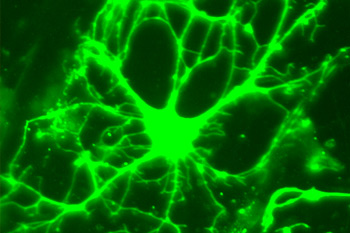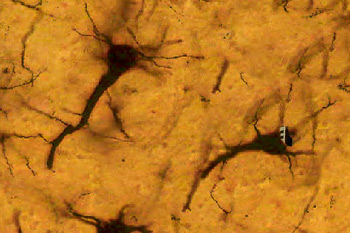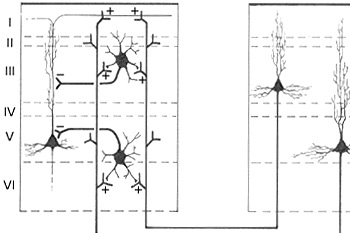Hamid I. Akbarali, Ph.D.
Department of Pharmacology and Toxicology
Mechanism of action of opiates, cannabinoids, and nicotine in enteric and sensory neurons
Matthew L. Banks, PharmD., Ph.D.
Department of Pharmacology and Toxicology
Understanding the neurobehavioral mechanisms of drug choice over other competing non-drug reinforcers toward the goal of developing pharmacological and behavioral treatment strategies for drug addiction
Jill C. Bettinger, Ph.D.
Department of Pharmacology and Toxicology
Physiological effects of alcohol on synaptic transmission and behavior
Darlene H. Brunzell, Ph.D.
Department of Pharmacology and Toxicology
Molecular, genetic, and behavioral contributions to etiology of drug abuse and mental illness in males and females
M. Imad Damaj, Ph.D.
Department of Pharmacology and Toxicology
Pharmacology of nicotine and nicotinic receptors; behavioral pharmacology; mouse genetics, drug development
Rory McQuiston, Ph.D.
Department of Anatomy and Neurobiology
Ventral hippocampal network function in activities such as aggression, anxiety, and consummatory behaviors
Andrew G. Davies, Ph.D.
Department of Pharmacology and Toxicology
Neurobiology of alcohol intoxication and tolerance; C. elegans behavioral genetics and neuroscience
William L. Dewey, Ph.D.
Department of Pharmacology and Toxicology
Action of drugs of abuse, with emphasis on the opioids; mechanisms of opioid tolerance and physical dependence
Michael S. Grotewiel, Ph.D.
Department of Human and Molecular Genetics
Molecular genetic bases of aging and alcohol-related behavior in the fruit fly Drosophila melanogaster; understanding the molecular events underlying aging (especially age-related functional declines) and nervous system responses to acute exposure to alcohol
Peter J. Hamilton, Ph.D.
Department of Anatomy and Neurobiology
Investigating and manipulating the drug- and stress-induced changes to epigenetic and transcriptional state in the brain’s limbic regions
Kurt F. Hauser, Ph.D.
Department of Pharmacology and Toxicology
Human immunodeficiency virus type 1 neuropathogenesis and its relationship to substance abuse; molecular mechanisms by which drug abuse alters CNS organization and function
Amy Lasek
Department of Pharmacology and Toxicology
Understanding the molecular and cellular mechanisms underlying alcohol use disorder using the mouse as a model organism. The overall goal is to find new therapeutic targets for alcohol use disorder.
Aron H. Lichtman, Ph.D.
Department of Pharmacology and Toxicology
Physiological function of the endocannabinoid system; mechanisms and pharmacological effects of THC and other cannabinoids
Javier Gonzalez-Maeso, Ph.D.
Department of Physiology and Biophysics
We are interested in the structure, function, and regulation of G protein-coupled receptors (GPCRs), their interacting proteins, and psychiatric disease associations such as schizophrenia, suicide, and alcoholism. In addition, our laboratory aims to understand the molecular, cellular, and neural circuit mechanisms by which environmental factors and chronic drug exposure alter behavior.
Michael F. Miles, M.D., Ph.D.
Department of Pharmacology and Toxicology
Molecular mechanisms of experience-dependent plasticity occurring with drug abuse; molecular mechanisms underlying sensitization to cocaine or ethanol
Stevens Negus, Ph.D.
Department of Pharmacology and Toxicology
Behavioral pharmacology of analgesic and abused drugs
Gretchen N. Neigh, Ph.D.
Department of Anatomy and Neurobiology
Neurobiology of depression and anxiety; psychoneuroimmunology; psychoneuroendocrinology; neurobiology of affective disorders co-morbid with somatic disease
Katherine L. Nicholson, Ph.D., D.V.M.
Department of Pharmacology and Toxicology
Behavioral pharmacology of drugs of abuse, particularly drugs that alter glutamate neurotransmission
Andrew K. Ottens, Ph.D.
Department of Anatomy and Neurobiology
Molecular mechanisms underlying juvenile behavioral deficits following environmental tobacco smoke exposure and its influence on later-life substance dependency
Carmen Sato-Bigbee, Ph.D.
Department of Biochemistry and Molecular Biology
Regulation of oligodendrocyte differentiation and myelin formation during brain development; mechanisms of demyelination/remyelination in multiple sclerosis; perinatal opioid exposure and central nervous development
Dana E. Selley, Ph.D.
Department of Pharmacology and Toxicology
Mechanism of action of G-protein-coupled receptors, especially those that mediate the effects of psychoactive drugs such as opiates, cannabinoids, and antidepressants
Keith L. Shelton, Ph.D.
Department of Pharmacology and Toxicology
Behavioral pharmacology of abused inhalants, stimulants, and alcohol; neurochemical mechanisms of subjective drug effects; behavioral mechanisms of relapse
Laura J. Sim-Selley, Ph.D.
Department of Pharmacology and Toxicology
Functional neuroanatomy of G-protein-coupled receptors, opioid and cannabinoid receptors; tolerance and dependence
Paul Whiteaker., Ph.D.
Pharmacology and Toxicology
Studies the molecular biology of nicotinic acetylcholine receptors (nAChRs). Areas of particular focus include the roles of nAChRs and natively-expressed regulators of nAChR function in substance use disorder, with an emphasis on nicotine and tobacco product use.”
Jennifer Wolstenholme, Ph.D.
Department of Pharmacology and Toxicology
Mechanisms underlying the neural regulation of neuroendocrine, emotional, and behavioral responses and how they mediate risk for neurodevelopmental diseases, specifically social stress and alcohol use in adolescents

 The mammalian nervous system comprises a complex array of cell types required for neural function.
The mammalian nervous system comprises a complex array of cell types required for neural function.  Traumatic damage to the brain and spinal cord constitutes some of the most devastating nervous system disorders. Nationally recognized investigators at VCU focus on the study, treatment and repair of central nervous system damage.
Traumatic damage to the brain and spinal cord constitutes some of the most devastating nervous system disorders. Nationally recognized investigators at VCU focus on the study, treatment and repair of central nervous system damage.  The mammalian nervous system is characterized by a highly sophisticated network of cell-to-cell interactions, and understanding its development and function is necessary to combat neurological disease and dysfunction.
The mammalian nervous system is characterized by a highly sophisticated network of cell-to-cell interactions, and understanding its development and function is necessary to combat neurological disease and dysfunction. 